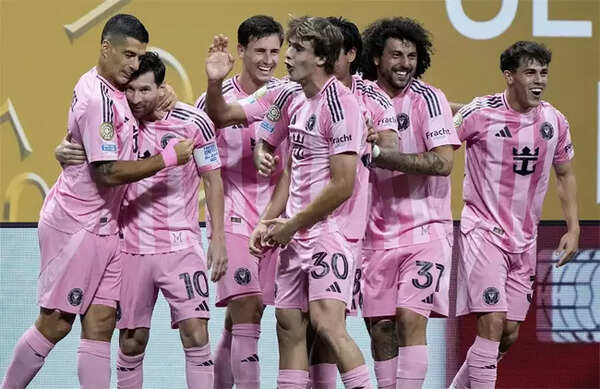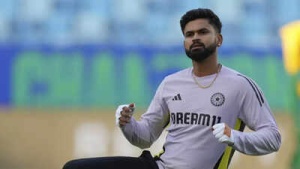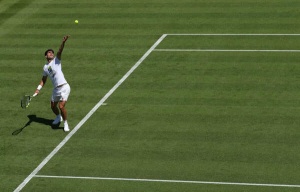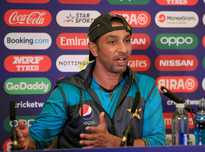The FIFA Club World Cup 2025, in its revamped format, has delivered a series of compelling narratives as it progresses to the Round of 16. This edition boasts an expanded roster of participating teams, a redesigned trophy, multiple host venues, and the innovative addition of a referee cam, bringing the tournament closer in scale and spectacle to the FIFA World Cup.
Organizers have hailed the event as a "celebration of hope, excellence, and pride," uniting clubs, players, and fans through their shared love for the sport. With numerous debutants and a month-long schedule, the tournament's prestige has undoubtedly grown.
Featuring teams from all six confederations – 12 from Europe, 6 from South America, 4 each from Africa, Asia, and North, Central America and the Caribbean, 1 from Oceania, and the host nation's representative – the 2025 lineup is complete.
With the group stage concluded and the final 16 teams determined, this year's Club World Cup has seen its share of surprises, underdogs challenging established giants, and emotionally charged encounters, both on and off the field.

Auckland City, ranked 4,971st in the Opta Power Rankings, entered the Club World Cup as the lowest-ranked team. They were drawn into a group with Bayern Munich, Benfica, and Boca Juniors.
Composed of amateur players from New Zealand's Northern League, Auckland City faced daunting odds. They suffered a heavy 0-10 defeat to Bayern Munich, the tournament's largest margin of victory, followed by a 0-6 loss to Benfica.
Facing Argentinian powerhouse Boca Juniors in their final match, Auckland City defied expectations. In a classic David-Goliath showdown, the amateurs denied Boca Juniors a crucial victory needed to advance to the Round of 16. The 1-1 draw, bridging a gap of 4,819 ranking points, marked a historic achievement for the New Zealand club.

Inter Miami, led by Lionel Messi and supported by Luis Suarez, Jordi Alba, and Sergio Busquets, defied expectations by progressing to the Round of 16 from a group including Porto, Al Ahly, and Palmeiras.
Despite securing only one win, Inter Miami's performance was enough to secure qualification. After a draw against Al Ahly, Messi's brilliance, highlighted by a stunning free kick, led Miami to a 2-1 victory over Porto. A 2-2 draw against Palmeiras sealed their place in the next round.
The final matchday in Group E saw tensions escalate as River Plate's Marcos Acuna and Inter Milan's Denzel Dumfries nearly engaged in a physical altercation after their match. The incident, rooted in a previous encounter three years prior, saw Acuna taunt Dumfries with a reference to Argentina's victory over the Netherlands in the 2022 World Cup.
Extreme heat and humidity also impacted the tournament, with teams employing ice baths and cooling measures for their players. Borussia Dortmund even had substitutes watch their game against Mamelodi Sundowns from the locker room to shield them from the scorching conditions, which their coach likened to a "sauna." Thunderstorms caused delays in multiple games.
The tournament also marked the first time that ICE (US Immigration and Customs Enforcement) and Customs and Border Protection (CBP) were present, requiring non-citizens to provide proof of legal status to attend matches.
With the 2026 FIFA World Cup, co-hosted by the United States, Mexico, and Canada, less than a year away, the Club World Cup has highlighted several potential challenges. Issues ranging from pitch quality to extreme weather conditions have raised concerns about the upcoming tournament.
Real Madrid's Jude Bellingham criticized the poor pitch conditions, stating, "The pitches aren’t great here. The pitches aren’t great at all," after his team's match against Pachuca in Charlotte.
Despite the emergence of underdog stories and unexpected results, the Club World Cup remains a competition dominated by Europe's elite. Powerhouses like Real Madrid and Manchester City are still favored to win the title. Several teams, including Seattle Sounders, Urawa Reds, Ulsan, Wydad AC, and Pachuca, were eliminated without earning a single point.
Older articles
 ICC Test Rankings: Pant Hits Career High, Bumrah Stays Top; Root Still King
ICC Test Rankings: Pant Hits Career High, Bumrah Stays Top; Root Still King
 Gavaskar Calls for Kuldeep Yadav Inclusion, Middle-Order Assessment After India's Test Loss to England
Gavaskar Calls for Kuldeep Yadav Inclusion, Middle-Order Assessment After India's Test Loss to England
 Prithvi Shaw Acknowledges Career Downturn: Faulty Choices and Lost Focus Derailed Cricket Dreams
Prithvi Shaw Acknowledges Career Downturn: Faulty Choices and Lost Focus Derailed Cricket Dreams
 India's First Dengue Vaccine Nears Approval as Phase 3 Trials Approach Finish Line
India's First Dengue Vaccine Nears Approval as Phase 3 Trials Approach Finish Line
 Rishabh Pant's Fearless Batting Redefining Test Cricket, Says Greg Chappell
Rishabh Pant's Fearless Batting Redefining Test Cricket, Says Greg Chappell
 Asia Cup Set for Mid-September Start as Optimism Returns Amid India-Pakistan Tensions
Asia Cup Set for Mid-September Start as Optimism Returns Amid India-Pakistan Tensions
 Vidit Gujrathi Defends Family's Medical Professions After Online Criticism: Chess Star Slams 'LiverDoc' for Disrespect
Vidit Gujrathi Defends Family's Medical Professions After Online Criticism: Chess Star Slams 'LiverDoc' for Disrespect
 Iyer's Test Debut Faces Delay Amidst Competition, Says Cricket Expert
Iyer's Test Debut Faces Delay Amidst Competition, Says Cricket Expert
 Wimbledon Eyes Indian Market: Leveraging Cricket Ties to Ace Expansion Strategy
Wimbledon Eyes Indian Market: Leveraging Cricket Ties to Ace Expansion Strategy
 Azhar Mahmood Tapped as Interim Test Coach for Pakistan After Gillespie Exit
Azhar Mahmood Tapped as Interim Test Coach for Pakistan After Gillespie Exit